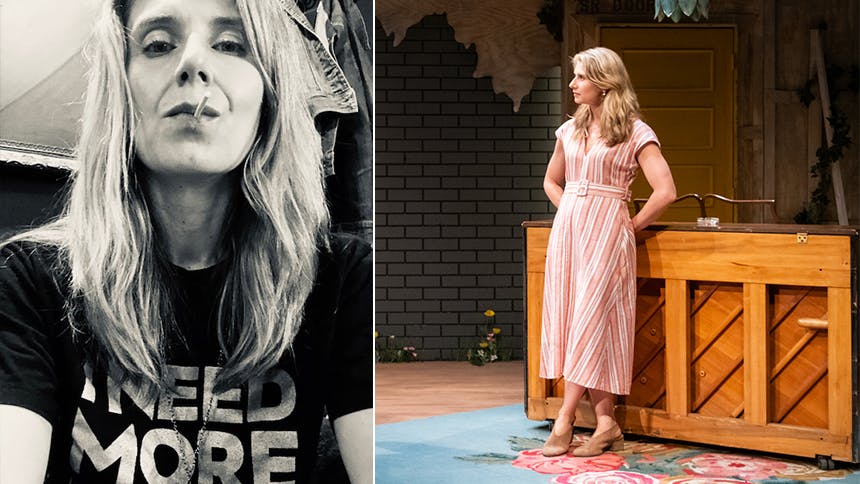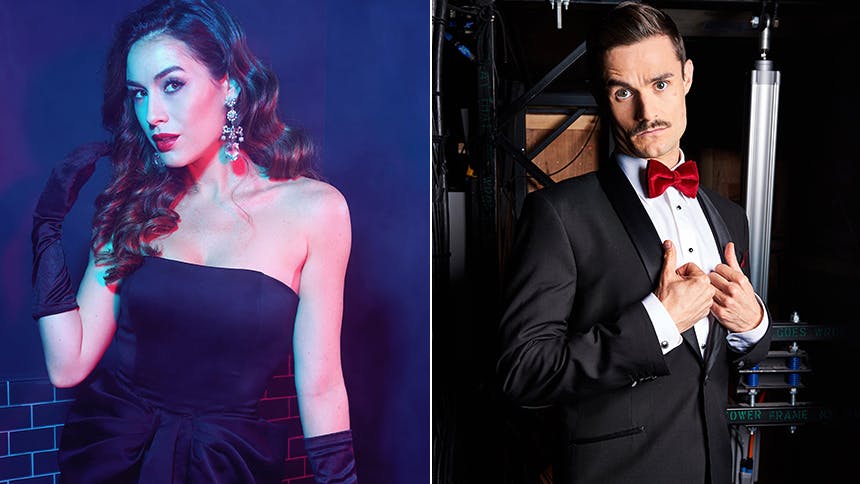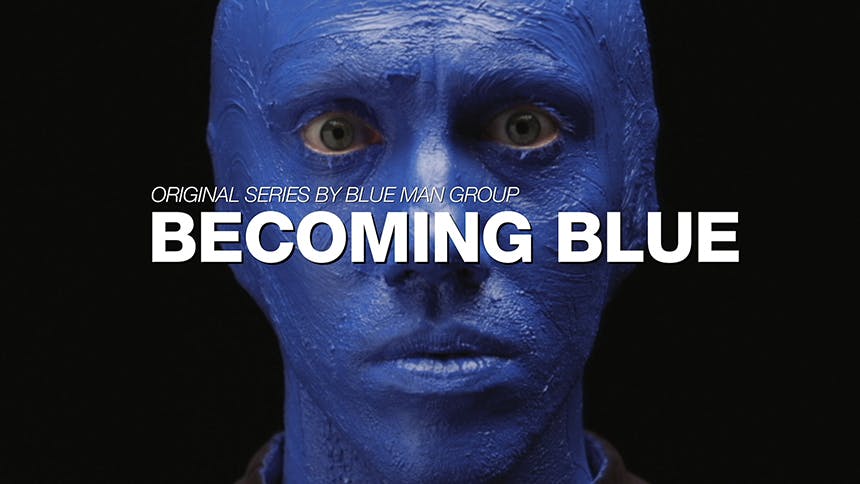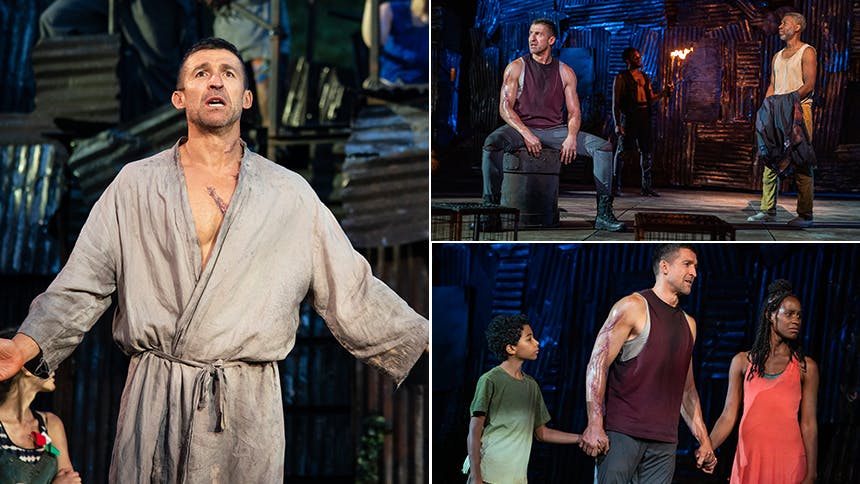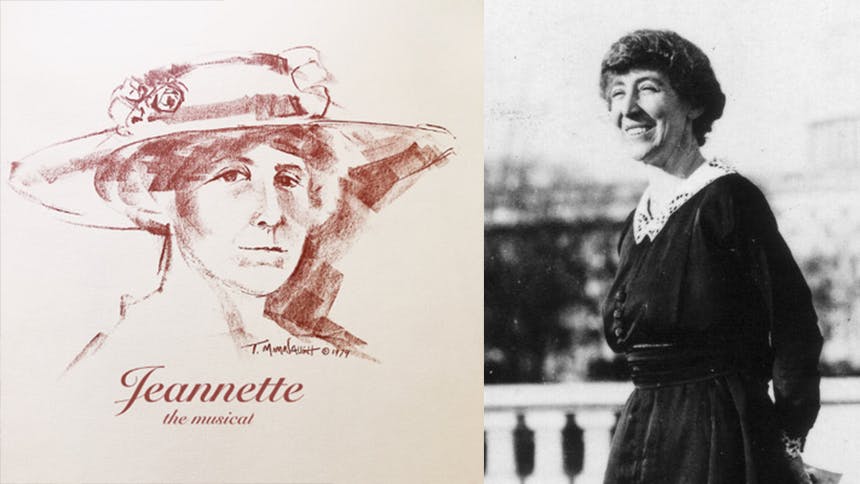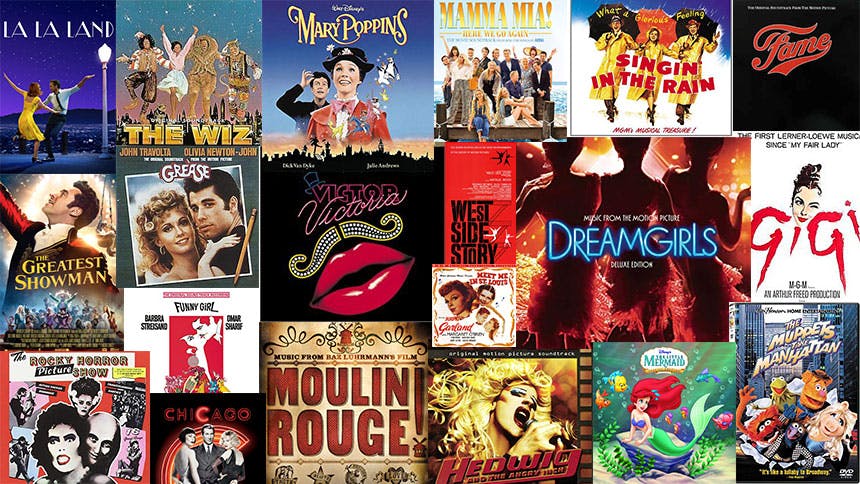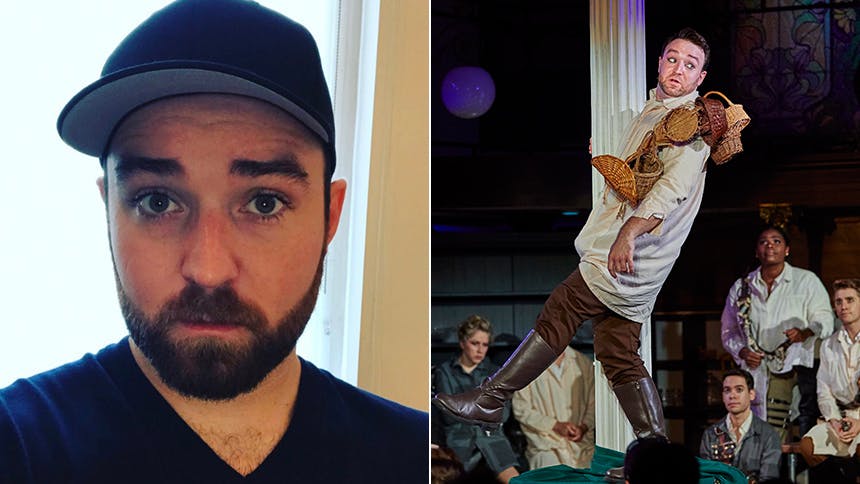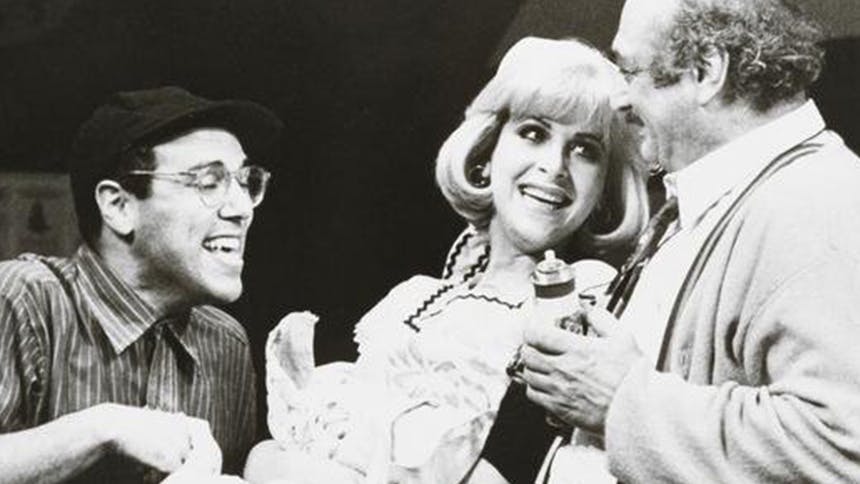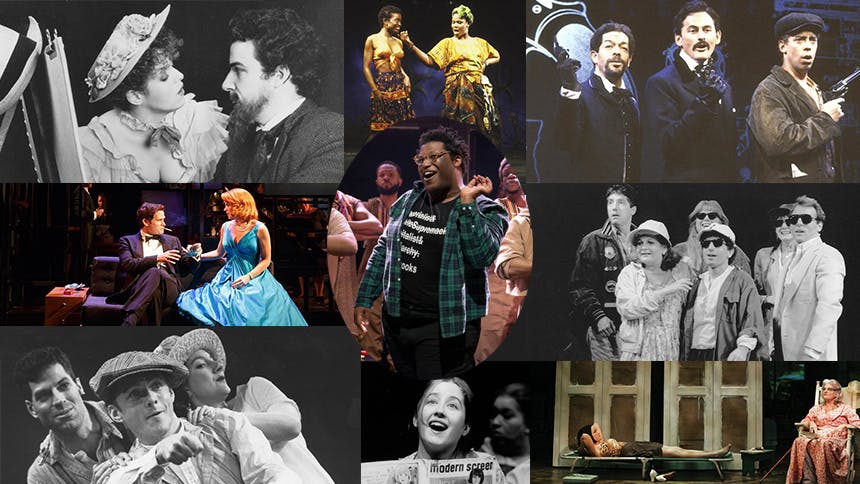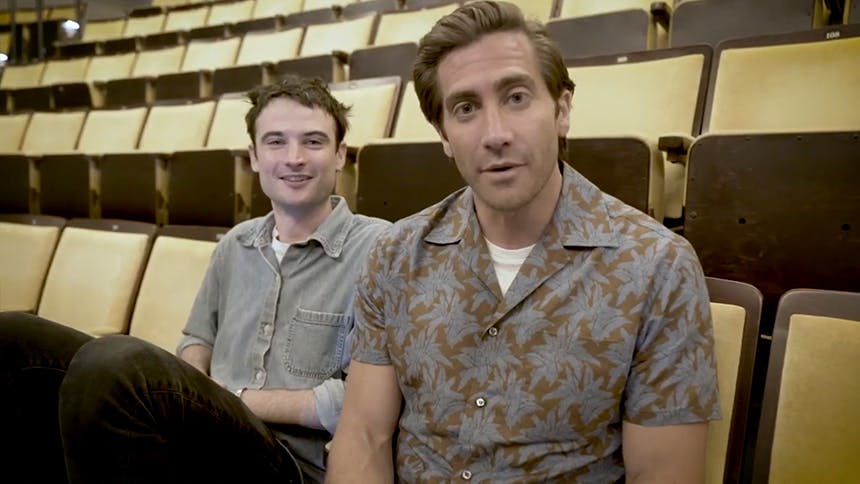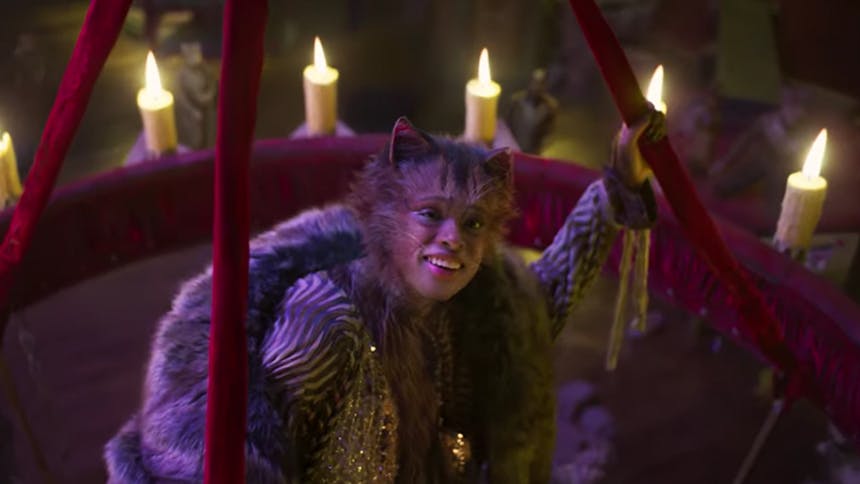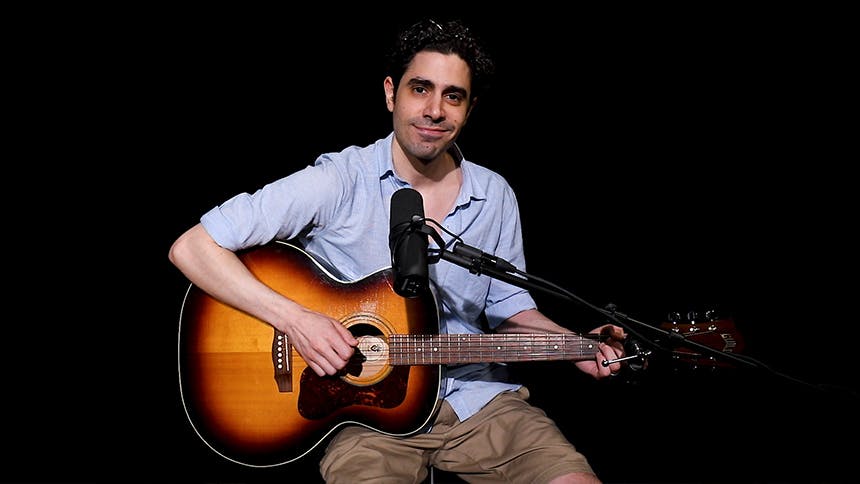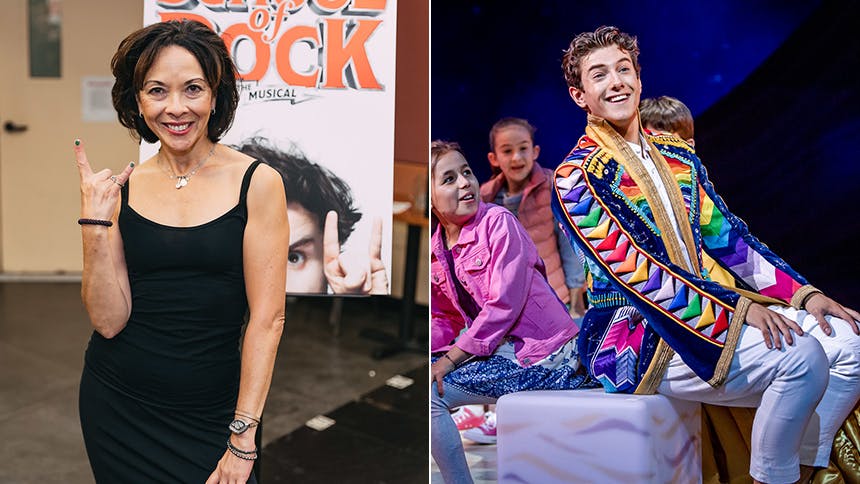Nadia Bowers stars as Ella in Aaron Posner's Life Sucks.
, a critically-acclaimed and contemporary take on Chekhov’s classic Uncle Vanya. Ella is a fierce, smart modern version of Chekhov's Yelena. Like Yelena, she's stuck in an unhappy marriage and hungry to get more out of life.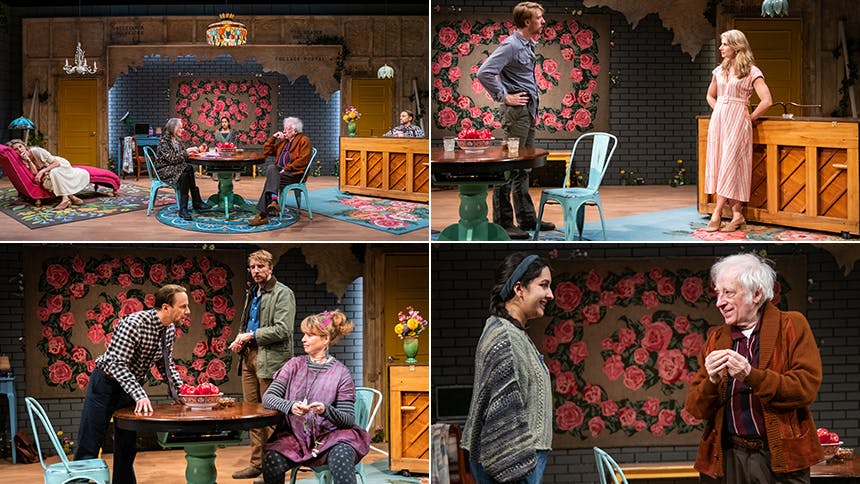
BroadwayBox caught up with Nadia (who has previously appeared on Broadway in The Farnsworth Invention, Doubt, and Metamorphoses) to discuss this plum role, her work as a writer and addiction advocate, and her dream project with her hubby, Corey Stoll.
1. What first drew you to the character of Ella in Life Sucks.?
I am familiar with the character of Yelena in from the original Uncle Vanya. I had only worked on her in acting class. I felt a kinship with her; she's a difficult character to crack. I always felt there was a fire in her that I never saw when I saw productions of the play. I think it’s a mistake to play her as a bored trophy wife. She’s in the middle of a crisis too, wanting more for herself, discovering that she got what she thought she wanted and she’s miserable. She’s actually jumping out of her skin. I mean, I would be if I were her. So, when I started to read Life Sucks., I was astounded. Aaron got it. I think he was able to unearth all that frustration and hunger in her and bring it to the surface. Within 20 pages of reading, I knew I had to do the play.
2. Did you go back to Chekhov’s Uncle Vanya to read Yelena again or was Ella crafted strictly from this text?
One of the first things we did as a cast was to read the original together. Jeff Wise, our director, wanted us to do that and it was informative. But I didn’t go back to it after that. And I don’t think Jeff really wanted us to. We were doing Aaron’s play and that was where our allegiance should be. I do know the original well, so it would sometimes be there as a tapestry on a wall in my mind. There was one line from the original that did stay with me in helping me think about Ella. Right before she kisses the doctor, she says, “For once in my life!” While I don’t think Ella, in her more contemporary life, has lived such an unexplored life as Yelena, I would think about that line as a key to her. Some might call it recklessness. More interestingly to me, I think it’s her ability to say yes to life in a moment. It’s a clear indication of where she is in her life, searching for some sort of catalyst to move her forward.
3. How did you make sure your Ella was more than just an object of desire?
This question made me chuckle. Thinking about making her/myself an object of desire made me nervous, to tell you the truth. One cannot control how desirable one is to others. I knew I’d have to count on the other actors to endow me with that. But, Aaron just wrote her beautifully. She’s a smart, intelligent woman. She has a PhD in this version! She is observant, self-aware, and has a lot of chutzpah. She’s absolutely imperfect and full of contradictions, but she’s a thinking being trying to figure things out. She knows what’s going on here and really sees people. I think one of the genius things Aaron got in this version is the frustration she feels with everyone else projecting their needs and desires and onto her—like she is the key to their happiness. She’s supposed to fix their unfulfilled lives. Doesn’t she have a say? “Object” of desire is apt. She’s not a thing. She’s a person having her own issues. As she says to Vanya toward the end: “I’m unhappy too, you know.”
4. What do you enjoy about having Austin Pendleton as a scene partner in Life Sucks.?
Oh goodness. Let me count the ways. Our scene together is honestly one of the most joyous experiences I have had onstage. We know the scene well, but it is never, ever the same. I have complete trust when I walk out there that we will have an experience and it will be different from the night before and the night before that, but it will totally work. Austin is known, I think, for his idiosyncratic ways, and to weave through a scene with someone who does not shut down his impulses, who is so at home onstage, is honestly a real privilege. All I have to do is key into him, and we’re surfing.
Also, offstage, it must be noted that he’s just the wonderful and hilarious. He’ll tell you stories about Arthur Miller and Elia Kazan and just about anything else. I’m writing this right now at SPACE on Ryder Farm where I am doing week long Creative Residency until 7/20 as a writer. We have an understudy going on this week for me and when I apologized to Austin for leaving and forcing him and my cast mates to do extra put in rehearsals, he waved me off and said, “Ugh. Guilt…it’s so boring.”
5. How did you find your path into performing?
I was always in dance classes and such as a kid and felt at home onstage. I was an athlete in high school but when I got cast in West Side Story as sophomore, deeps seeds were planted. I had a singing teacher who told my parents I should go to college in New York, and I think that scared them. I ended up going to college in New Hampshire and being a sociology and French major. I didn’t feel like I could call up my parents and say that I was going to major in theatre. I was still dancing, acting in a political women’s theatre group called the Untamed Shrews. But it wasn’t till my senior year in college, after staring at all the theatre majors in envy, that I decided to take some classes. I did and I got cast in some plays.
I had one professor, Paul Gaffney, pull me aside one day after I performed a monologue I had pieced together from the Chris During play Beyond Therapy. He said, “Come see me this week.” When I came to his office the next day, he said, “I normally don’t tell this to people because it’s hard. But I think you could do this.” I’ll never forget that day. I even remember what I was wearing. I walked out of his office in a haze, but full of purpose. I secretly (meaning I didn’t tell my parents) applied to a summer program at ACT in San Francisco, and three days after I graduated from college, I was on a plane there. I stayed for two years taking more classes and acting. Then I got into graduate school at NYU and made my way back East. I had to fight for it, but I should say that my parents grew to be very supportive. And I’m really excited because Paul Gaffney and I have recently found one another. I had been trying to reach him over the years to thank him for believing in me because I just needed one person to give me the green light. He changed the course of my life, and I’m forever grateful. He heard a piece of mine on This American Life and contacted my agents through my website. Now it looks like he’s coming to see me in Life Sucks. at the end of the month! I think it may be a little emotional for me.
6. You a write and interview as well as perform. If you could interview any other actor, who would be the dream, and what’s one thing you’d definitely ask?
I think I’d like to interview Lucille Ball. People have told me that parts of me remind them of her, which is kind of the most flattering thing a person could possibly say to me. I’d ask her to tell me one truth she knows for sure about comedy.
7. What has it been like to connect with the people who have reached out after “Dear Dealer”? Were people eager to share their own stories with you?
It has been, at times, overwhelming to connect with proper over “Dear Dealer.” Overwhelming in the best way. And humbling. So many people need to share their stories, need to talk about their own addiction or the struggles of people they love. There is so much shame surrounding it and people are suffocating. People were very willing to share stories privately with me as sometimes they cannot even talk to their own families. People I didn’t know and people I did know but whose struggles were unknown to me reached out. Both addicts and the people who love them found resonance with the piece, and this has meant the world to me. One woman told me the piece may have saved her life as she was an addict and now felt more open to talking to her family. I’ve met extraordinary people. Two of them, Lindsay Brown and Alyssa Palella, started an organization called Best Day Ever. It was created from their experiences with addiction and recognizing a gap in how we as a society were approaching addressing it. Part of their mission statement states that they are “dedicated to fighting the addiction and opioid crisis by empowering individuals and families with healing, inclusive and inspiring communities.” Their goal is to “help de-stigmatize addiction by revitalizing America’s support community and help those who are suffering trauma and/or unimaginable heartache understand that one of the ways to get through this is to find purpose and community.” Working with them has been encouraging and inspiring and I am on their board now. I only wish my sister could have been a part of something like this with me.
8. Do you and your husband Corey Stoll have a dream play that you’d love to co-star in together?
It’s funny, we both really want to do Streetcar. But Corey worries it won’t be good for our marriage. I personally think we’d be fine! Also, there’s a little play by Brian Friel that I have always wanted to do with him. It’s called Afterplay. It’s an imagined meeting of Sonya from Chekhov's Uncle Vanya and Andrey from Three Sisters. I’ve always had this special feeling about it.
9. What is your most cherished memory from the Tony and Pulitzer-winning original Broadway production of Doubt?
Oh, there were many. But the one that pops up first because actually Cherry Jones just came to see Life Sucks. and I reminded her of this moment… the first time I went on for Sister James was off-Broadway and it was an emergency situation. I got a call in between shows on a Saturday to return to the theatre immediately because I was going on that night. I remember sitting in my nun’s habit in the dressing room with Cherry. She was sitting on the toilet in the bathroom with the door open, also in her habit. She peeked her head out and said, “I don’t know how you’re so calm!” And then after that, it was staring into those blue eyes of hers onstage, so open and available, sending me the message, “I’ve got you. You’re going to be just fine.”
10. What inspires you right now as a performer and a writer?
It’s funny, I am a huge Stevie Nicks fan and I was just doing a little research for something I’m writing and watching the music video of her and Tom Petty singing “Stop Dragging my Heart Around.” It’s one of the first music videos to appear on MTV and incredibly low-fi. Like, from a 2019 perspective, almost hilariously so. However, I was mesmerized by them. Their presence when they weren’t even doing anything but singing. Stevie’s eyes are very expressive at a few select times, like she has a secret she’s absolutely not going to tell you, but she’s not doing much or giving too much away. Same with Tom. He’s just singing and playing his guitar. But there’s this surety and effortlessness to them both that is entrancing. And they are completely themselves. I think I have always looked to musicians, people like Prince, to give me a sense that there are no bounds onstage. By showing up fully, then and only then do you deserve your place up there.
As a writer, I find the book Truth and Beauty by Ann Patchet inspiring. I am reading it now for a second time. It’s about her friendship with the writer Lucy Grealy. Years ago, I read Ann’s book and Lucy’s Autobiography of a Face back to back (an experience I highly recommend) and it was powerful and quite influential for me. This was before my sister had died, but both of these books gave me the courage to finally take seriously some of the non-fiction writing that I was burning to do.
Don’t miss Nadia Bowers as Ella in ‘Life Sucks.’ at off-Broadway’s Acorn Theatre through September 1.
